Sustainable Food
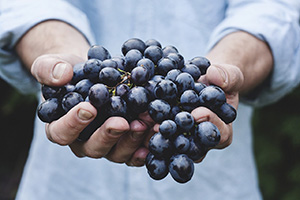 |
Whether you're looking to procure sustainable, local, or fair trade food, RPN has resources to help you find products that meet your needs.
Institutional purchasing contracts are a useful tool to help scale up demand for — and production of — local and sustainable food in the region. Furthermore, specifying fair trade products like coffee, tea, sugar, and cocoa, not only protect the environment but also are produced in ways that provide fair wages and working conditions.
RPN Resources
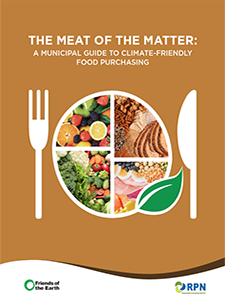 |
The Meat of the Matter: Climate-Friendly Food Purchasing - December 2017This report, developed by Friends of the Earth and RPN, presents a menu of tools, approaches, and examples, including a model climate-friendly food purchasing policy and standards, acknowledging the many ways that cities and counties can advance climate-friendly and healthy food procurement. The report includes:
|
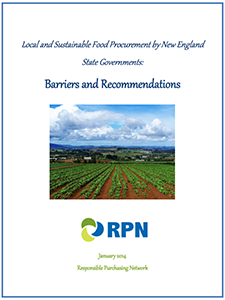 |
Local and Sustainable Food Procurement by New England State Governments: Barriers and Recommendations – Nov 2013Under a grant from the John Merck Fund, RPN identified best practices for institutional purchasing of local food in the New England region. Though the complexity of fresh food purchasing can form barriers to large-scale change, a behind-the-scenes look at food purchasing allowed RPN to provide recommendations for overcoming each challenge. The recommendations are intended for purchasing officials to implement, but are explained in a way that is accessible for advocates and inside institutional champions such as State Departments of Agriculture. |
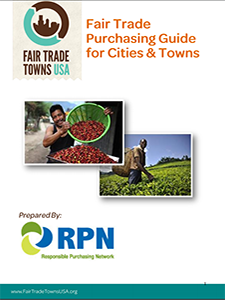 |
Fair Trade Purchasing Guide for Cities and Towns - July 2013This guide covers everything municipalities might need to know to add fair trade-certified coffee, tea, sugar, and cocoa to their contracts. The guide includes:
|
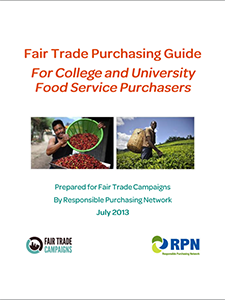 |
Fair Trade Purchasing Guide for College and University Food Service Purchasers - July 2013This guide is designed for purchasing agents on higher education campuses. Student advocacy groups often promote the purchase of fair trade goods, but they may not be familiar with contracting strategies that can help their institution successfully identify and add these products to their contracts. The guide includes:
|
Webinars
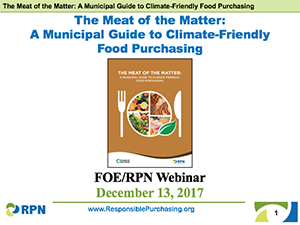 |
RPN/FOE Webinar: The Meat of the Matter: A Municipal Guide to Climate-Friendly Food Purchasing - December 13, 2017Cities and counties can fight climate change by offering less meat and more plant-based meals in their institutional food service operations. Municipalities that already made this change have experienced a triple win: promoting health, protecting the planet, and saving money. This webinar highlights recommendations from The Meat of the Matter: A Municipal Guide to Climate-Friendly Food Purchasing, a new resource developed by Friends of the Earth and RPN. This webinar covers:
Panelists:
|
 |
RPN Webinar: Local and Sustainable Food Procurement: Best Practices of Northeastern State Governments - April 9, 2014Is your state government interested in expanding purchase of locally and sustainably farmed agricultural products? Creating markets for these products can contribute to the regional economy, preserve farmland, and support a thriving, healthy food system. Listen in to an RPN webinar supported by the John Merck Fund that highlights best practices developed in the New England region to foster state government procurement of local and sustainable food. This webinar covers strategies to:
Panelists:
|
 |
RPN Webinar: Sustainability in a Cup: Institutional Procurement of Fair Trade - Oct 17, 2013Is your jurisdiction or organization looking for sustainable products that are not only designed to protect the environment but are also produced in ways that provide fair wages and working conditions? This webinar highlights two fair trade purchasing guides that can help you fulfill your commitment to sustainability by sourcing products that are fair trade-certified by third party organizations. In partnership with Fair Trade Campaigns, RPN produced two guides tailored to two different audiences: 1) cities and towns and 2) colleges and universities. This webinar covers:
|

